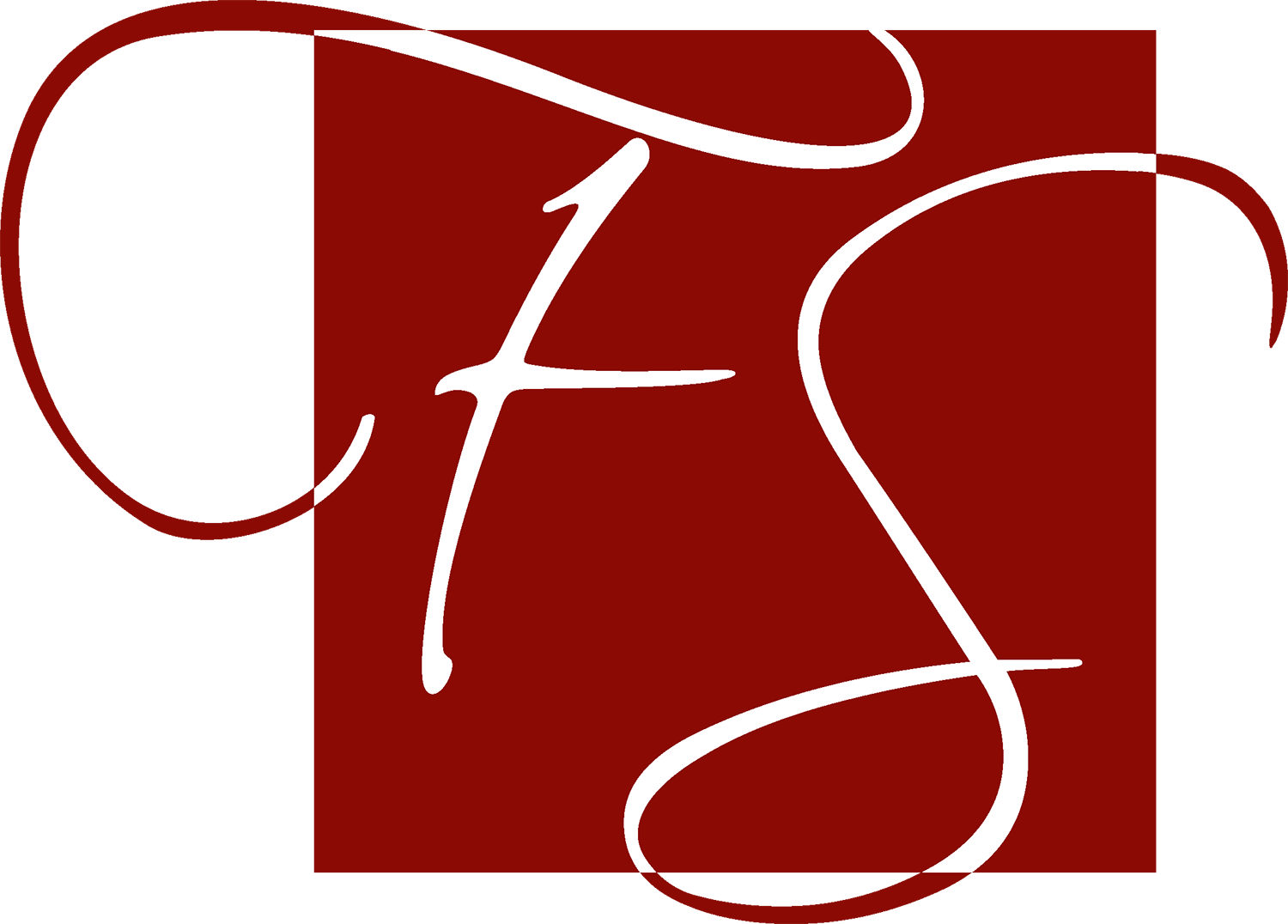Head Coach Eric Quill Returns to Lead FC Dallas
By Stephen Hunt
By the time he was ten, Eric Quill had his professional future completely mapped out. When his father asked what he wanted to be when he grew up, he said he wanted to be a professional soccer player and then a coach. And Quill, 46, named FC Dallas’ (FCD) new head coach in November 2024, has done exactly that.
“There was never any detour – any thought to detour. [I] Didn’t know quite what that journey would look like, but I always knew [the destination],” Quill said. “On the basketball court, I was a leader and captained teams which I played on. I was always coaching. Even when playing, I was studying the game. A lot of coaches had great impacts on me. That [coaching] was innate in me. I knew I wanted to do that when done playing.”
He played nine seasons professionally, mostly in Major League Soccer (MLS) with several teams, including the Dallas Burn, which FCD was formerly known; in 2004, he gained significant international experience with the United States’ Under-16, U20, and U23 national teams, and has been a successful coach at the collegiate and pro levels, leading North Texas Soccer Club (SC), FCD’s United Soccer League (USL) League One affiliate, to a league championship in 2019 and earning coach of the year honors.
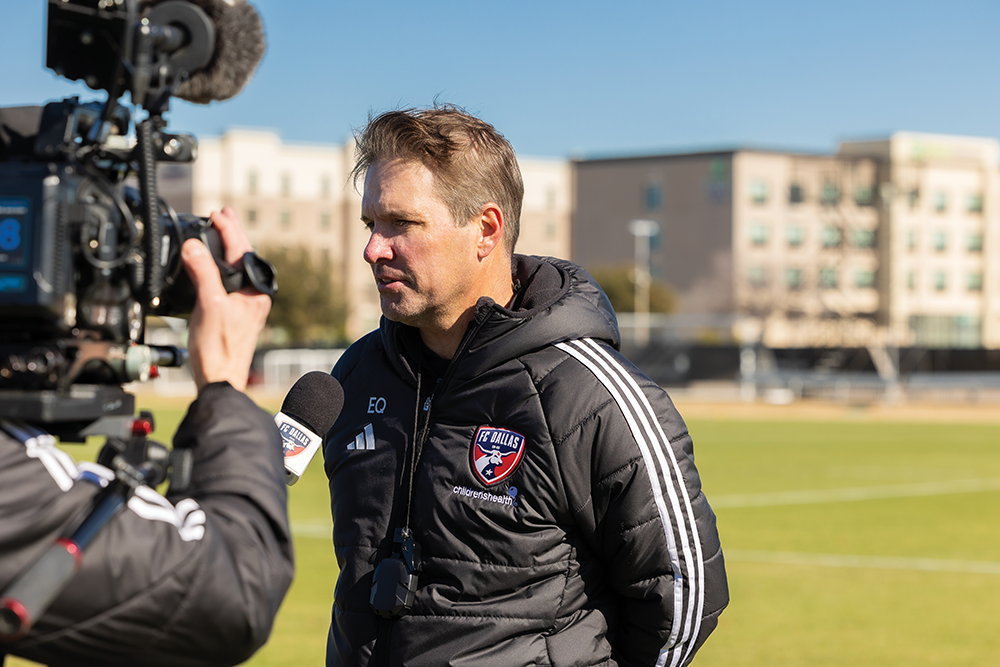
In 2021, he was a finalist for the FCD job after the club had dismissed Luchi Gonzalez that September but wasn’t hired. However, he resolved to use that disappointment to gain more experience so that when the opportunity to coach FC Dallas arose again, he’d be ready. “At the time, [there’s] obviously disappointment when you don’t get the job, but God was telling me I wasn’t ready yet, and that was probably right,” Quill said. “I needed to go out, learn, and grow. Going to Columbus and being able to apply what I knew from here to Columbus and to go to New Mexico and apply what I know and what I’d learned – that was a valuable experience. I think that’s why I’m here today.”
He spent two seasons as an assistant coach with the Columbus Crew of MLS under Caleb Porter, one of three coaches to win MLS Cups with multiple teams. Most recently, in 2023 and 2024, Quill was head coach of New Mexico United of USL Championship, the number two American pro league behind MLS. And when FCD came calling a second time, he knew he was ready to return home.
“It’s coming home with a purpose, though. It’s nice to be back, but the purpose is to lift the first MLS Cup in the club’s history,” Quill, a Missouri City, Texas native, said. “That’s the sole focus and finding ways to change the culture and mentality of the club in all the right ways.”
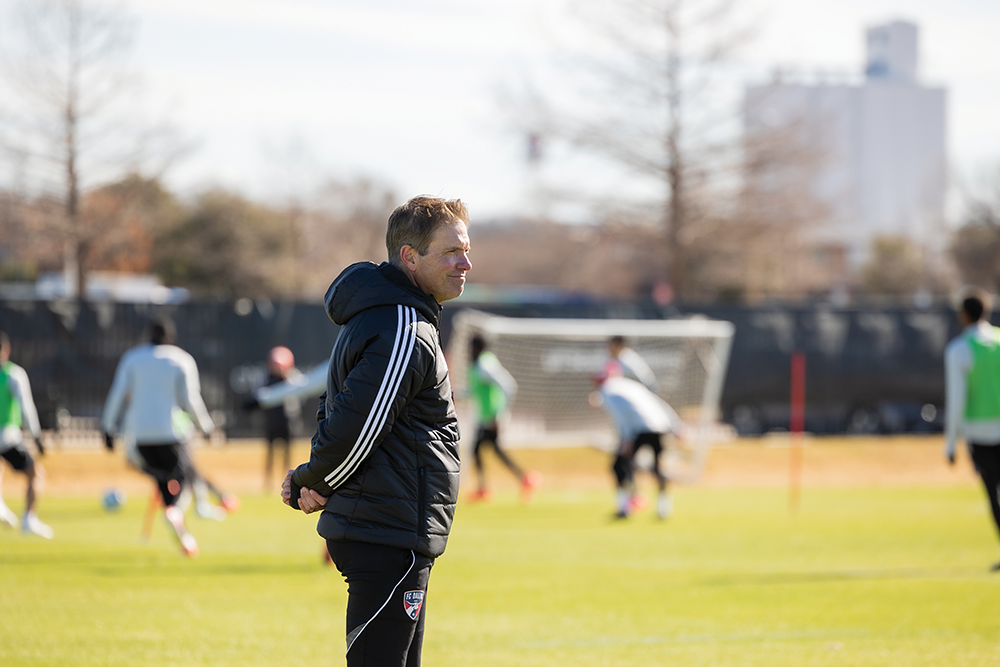
A Rock-Solid Foundation
Quill considers himself incredibly blessed to have grown up with a father who was a pastor and a mother who is a schoolteacher. He knows coaching is in his DNA thanks to that combination of his parents’ professions-helping people and teaching.
And while some professional athletes hope to spend their entire playing career in one spot, Quill knows that is the exception and considers himself fortunate to have played for so many different teams and for coaches like Bob Gansler, who had coached the United States Men’s National Team before leading Kansas City to an MLS Cup win in 2000, and Tim Hankinson, another top-level American soccer coach. “I think I’m a smorgasbord of the coaches I played for and with,” he said.
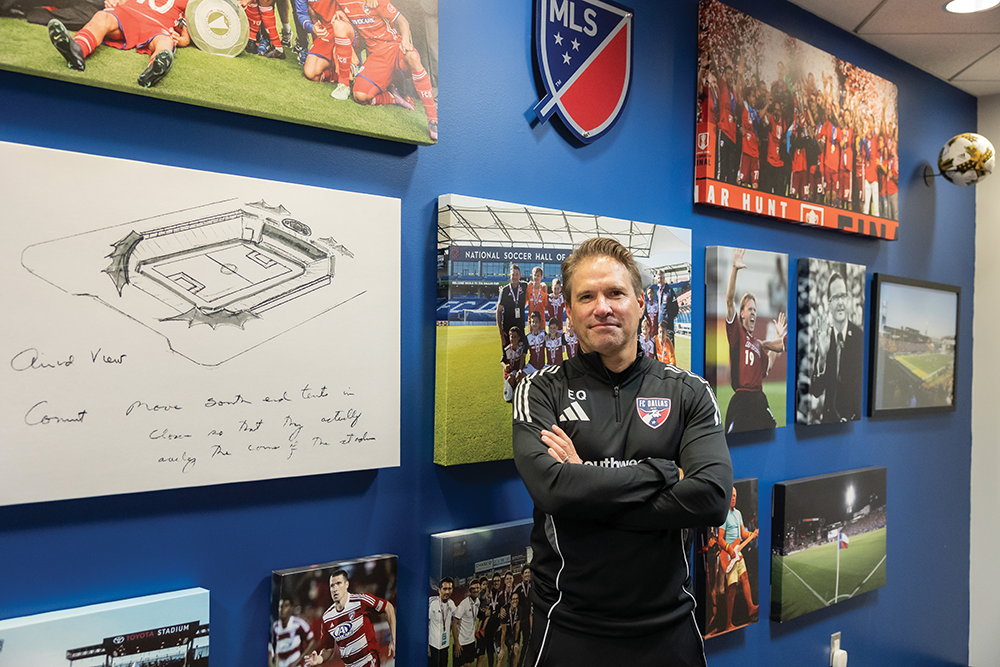
“That’s the value of experience, right? It’s the value of getting to see different environments,” Quill said. “Playing in different environments, you absorb as much as you can from coaches you’ve had and players you played with, coaches I’ve coached with. I’m always trying to evolve myself and extract things I think translate to being successful as a human being and coach. I’m a big self-reflector and analytical. I love making people better. That’s ultimately why I chose this profession, to make people better versions of themselves and help teams win trophies to validate all the hard teamwork that goes into an 11-month season.”
Buzz Carrick has been an FCD fan since 1996, the club’s inaugural season. He also started the first independent blog about the team, 3rd Degree, which remains a popular destination for local soccer fans. And Carrick thinks FCD has hit a home run with its hiring of Quill. “This a terrific hire. This is a coach who came through their system having played here and coached here,” he said. “What I think is particularly exciting about him is he has actually won things along the way by developing players and putting players first.”
“This club has a clear DNA [of developing its own talent]. The last coach [Nico Estevez] I didn’t think fit the DNA and the coach before that [Luchi Gonzalez] was hired maybe too early, but when Eric didn’t get this job the last time, he set out to give himself clear experience at the MLS level and running another team at a higher level so he could come back and get this job. This is a job he wanted, and it’s a perfect fit for this organization.”
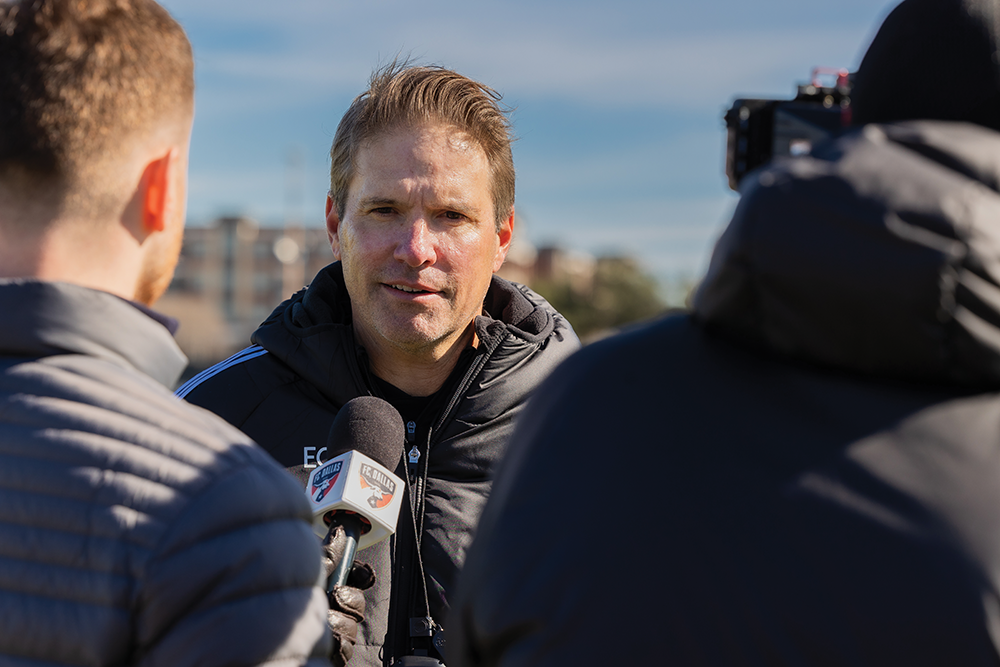
And Carrick knows that Quill’s aggressive, attacking brand of soccer will instantly resonate with FCD fans. “He loves the combination of skill and athleticism. At this level, athleticism can really make a difference,” Carrick said. “He’s a guy that wants some pace, power, and verticality on top of (having) skilled players. He’s going to look to unleash that and get at people and play very aggressive going forward. That’s his style and his mentality.”
In high school, Quill garnered interest from AFC Ajax of the Netherlands, one of the top clubs in Europe. He opted to remain in the States, playing one semester at Clemson University before turning pro as an MLS Project 40 player, a program designed to encourage domestic talent to give the new American pro league a shot instead of venturing to Europe, which could have proved more lucrative. However, instead of crossing the pond, he stayed put and is content with how things have played out.
“My parents, they didn’t know the world of soccer at all. They didn’t know who Ajax was,” Quill admitted. “They didn’t know when that opportunity was coming for me. In this day and age, now as a dad, I would be like, ‘Yeah, go,' (if my kids had the same opportunity). My parents just didn’t know that part of the world and what my trajectory as a soccer player really was. They just knew I was a talented kid. I think had they kicked me in the rear end and said, ‘Go chase your dream,’ who knows how different it would have been?”
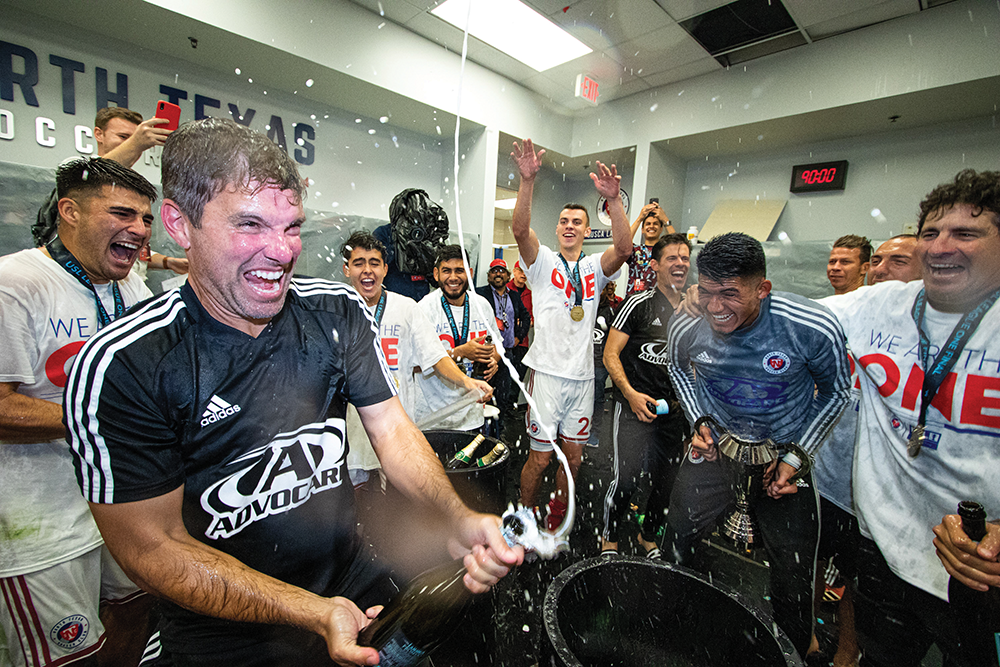
Quill also remembers how quickly his world changed once he decided to leave Clemson and turn pro. “From the end of my high school [career] to walking on the field for my first professional game, it was a really tight [window], close proximity,” he said. “The world came very fast at me then, and I just tried to absorb it, grow, and learn how to be a pro and make it last as long as I could.”
Ambition is Key
Many coaches, when hired by a new team, talk about changing the club culture and employ a wide range of mantras, mottos, or sayings in discussing how they will accomplish that goal. Quill, however, takes an alternate route, instead defining his culture by one simple word.
“Ambitious – I love challenging teams that I coach to be ambitious and not fearful of mistakes. This is a game that has a lot of failure in it, and I want to instill in the guys that you’re not going to be able to avoid failure,” he said. “It’s who we are, and when we fail, how do we react from failure? How does our psyche stay strong through failure? That’s what I try to instill, is a lot of confidence in the group but challenge them (at the same time).”
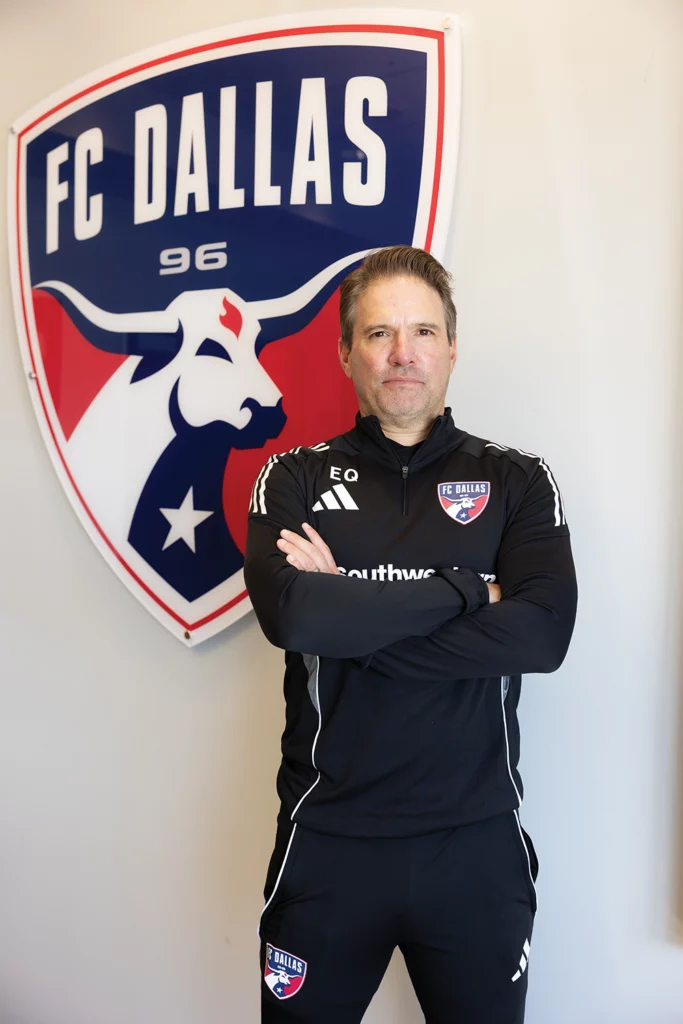
Inherent in that culture is a strong sense of accountability to one another and to the organization. One crucial tenet of this accountability is another cornerstone of how he coaches. “I’m always a very honest coach, but mentality is non-negotiable for me. Without a (positive) mentality, you can be as talented as you want, but you’ll never win championships without a collective mentality and consistency of mentality,” Quill said. “You can’t be here one game and three games not; it’s got to be an everyday [thing]. Every day that we walk out here (whether for practice or a game), there’s something to prove. We got to know what our why is all the time. That’s all I do, is I challenge the group and remind them of that.”
During his lone season with the Burn, Quill was coached by Colin Clarke, who had played professionally in his native Northern Ireland and in England before becoming a successful head coach in the States. One of his teammates that year was Oscar Pareja, a fiery Colombian and big fan favorite who later returned to coach FCD. Being around the two of them left a strong impression on Eric.
“Colin played at a very high level…bright mind for the game, great manager of people. He was always a compassionate coach that wanted us to be better versions of ourselves. Colin had a great coaching philosophy, DNA,” Quill said. “Oscar, there’s no bigger competitor. Fiery, fiery guy (who) expects the world and has a standard he’s not willing to negotiate on. That’s who he was on the field. He was the brawn. Even though he’s not a big guy, he’s got a huge heart and held everyone accountable and played as hard as anybody will ever play. The guy all the time was a beast.”
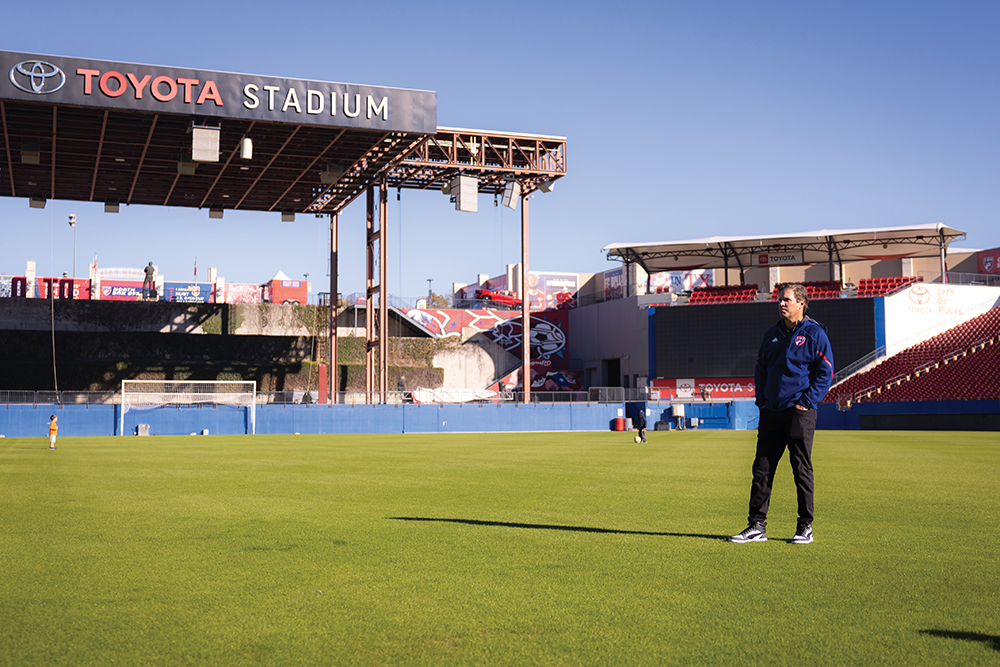
Besides being a coach and leader of men, Quill is also a husband and a father. In fact, his wife, Susan, is a former head women’s coach at the University of Houston who hired him as an assistant coach with the Cougars in 2007, which is how they first met.
“My wife’s the best coach in the family. She was a high-level player with a great mind for the game,” he said. “I love not only coming to work, but I get to talk the game when I go home, too. It never stops in my household. I’ve got kids that love to play it and are very talented doing it. She’s still the head coach. She’ll always be the head coach of our family. She hired me at the University of Houston to be her assistant. She was the boss, and she’s still the boss.”
Stephen Hunt is a longtime Frisco resident and accomplished freelance writer.






